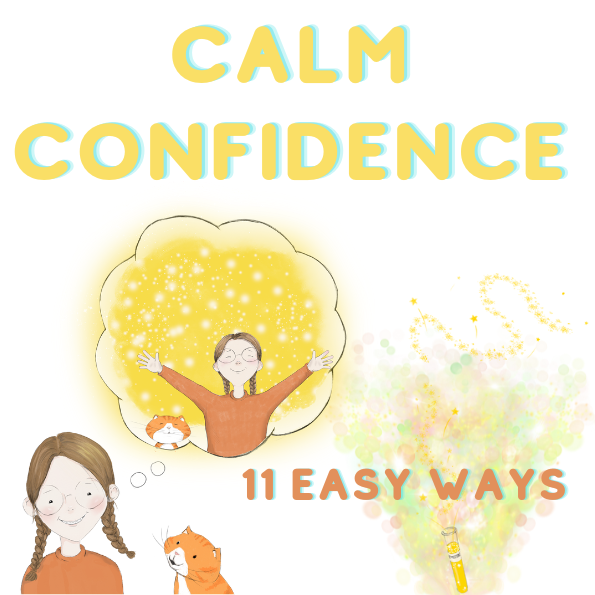
by Kay Spare Login | Jul 3, 2023 | be well, brain aim, kids, mental health, mind-body, resilience, work well, workingwithkids
Do you have your own definition of good mental health? Have you ever thought about this? What are your guiding principles?
According to the UK Mental Health Foundation, good mental health is:
- The ability to learn
- The ability to cope with AND manage change and uncertainty
- The ability to form AND maintain good relationships with others
- The ability to feel, express and manage a range of positive AND negative emotions
In which of these areas do you excel? And which one needs some development? Does this resonate with you?
I’m a big fan of wellbeing personal audits since all of these ‘abilities’ once brought to your conscious awareness, can be trained, and refined. Accountability helps balance the current trend of victimhood.
You probably know how important it is to get clarity about the future you are aiming your brain towards. Aiming your mind and body towards better mental health seems like time well spent, don’t you think?
With that in mind, I’ve adapted the MHF definition into an easy exercise to help you do review your own needs. I suggest you write out your answers as it has a stronger imprint on the sub-conscious mind.
- Is learning new things important for you? Is it easy? What would make it easier?
- How adaptable are you to change and uncertainty? Where in your life, would you like to grow more flexibility and how would the ‘future you’ benefit from doing this?
- Do you easily form new relationships? And how do you nurture longer term relationships? Where could you better connect with others?
- Are you comfortable with your full range of emotions? With which emotions do you need to get more comfortable? Which ones do you want more of and which ones do you need less of?
- Are you being the best you can be so that any time, any place anywhere you shine? Which aspects of your personal growth do you prioritise?
Is your ‘north star’ shining from the constellation called thrive?

by Kay Cooke | Jan 30, 2023 | next generation
Created in 2010, these fun, easy to follow brain training activities are ideal for young families and primary classrooms.
Instant Calm – Belly Breathing
Quietly Clear – Building Confidence
Brainy learning – Balance Body & Mind
Brain balance – Finger Play
Personal power – Heartful
Choose feelings – Spinning Feelings
Perfect peacefulness – White Feather
Brain boost – Eyes Around
Chaos to calm – Glitter Ball
Power up – Power Pack
Reassure an anxious mind – Finger Chat
Welcome to these practical activities that help you minimise stress and create feelings of calm and confidence. You will find increased self-esteem
and smarter thinking are very pleasant by-products.
This kit will train your nervous system to be calmer and to stay calm and confident in challenging situations. Practising them regularly will mean that you’ll get better at being able to do them whenever you really need to.
There are 11 fun activities for you to experiment with, each one is proven to help develop resilience. CLICK HERE

by Kay Cooke | Sep 29, 2022 | be well, mental health, mind-body, psychology, resilience, work well
Balance – it’s in our nature.
In 1995 fourteen wolves were released into Yellowstone National Park.
At first deer numbers drastically reduced and then deer behaviour changed as they moved into areas less visible to the wolves.
In the absence of deer foraging, flowers and trees began flourishing, which led to berries, bugs and insects, which in turn attracted more birds. And then beavers returned, building dams that provided habitat for otters, muskrats, and reptiles. Coyote numbers reduced causing proliferation of rabbit and mice, which in turn attracted hawks, red foxes, badgers, and weasels.
And once a ‘balance’ between predator and prey was established, the park’s physical geography had changed as (previously eroded) riverbanks were now stabilised by the new vegetation.
What’s this got to do with NLP?
Have you ever noticed how the mind’s internal environment can house both predator AND prey? And although people come to us seeking ‘balance’ between work, home, and play, learning to ‘balance’ their internal habitat, always positively affects management of the outside world.
What are the mechanisms for restoring the mind’s habitat to flourishing vitality? Solutions start with awareness of possibility and an attitude of willingness to seek ‘balance’.
To do this we must think on purpose! Because thoughts alone either deplete or nourish brain-body chemistry, which in turn can cause erosion OR restoration of sustainable balances within.
Keep feeding thoughts that nurture thriving, that’s all. This alone will starve what no longer needs to exist in that place.
NLP is a system for sustainable inner balance! Do more of it! And if you can’t easily do it for yourself – do it so that others in your social system may thrive. Humanity is in great need of ‘balance’. And nature teaches us all we need to know.
Discover how we can help you balance your thoughts, feelings and behaviours and change your internal geography: HERE

by Kay Cooke | May 3, 2022 | work well
Speaking metaphorically and following the Star Wars (films) reference/ambiguity “May the 4th go with you…” Would you say your inner light-saber generally shines light and bright, or dull and dim?
And thinking about your shiniest days at work, do you know the critical factors that influence these? For example:
- Which thoughts are in your mind while you are a beacon of light at work?
- What emotions maintain your best flow state?
- How do others perceive your most vibrant behaviours?
Why should you care about this?
Well as you surely know, people talk avidly about the things that deplete them. Indeed, many an evening’s meal can centre around bitching and moaning about matters of work. And you know people get hooked into the dramas of (tradable) tales, bonding through intense emotions. That’s how, as social animals, we roll. But do remember you can choose to bond over positive emotions too!
That’s not to say it’s not helpful to express your frustrations of the day, just don’t stay there! Don’t train your brain to feel comfortable in that stress zone, it prepares your auto pilot to seek more of the same.
Tip 1:
Be proactive about engaging emotional states that serve your growth. Look for the positives in your life and design more positive spirals. The message in the Star Wars films is about igniting inner power and using it to grow a better world. Make your contribution count for good.
Tip 2:
Balance time spent expressing pissy niggles, with time spent expressing excitement, wonderment, and gratitude.
Tip 3:
Pattern on purpose – your brain likes patterns, why not choose to practise the upward spiral? Deliberately run a sequence of emotions from grotty to glowing e.g., feeling ‘argh, pah, meh, mmm, ahh’.
Tip 4:
Emotions are contagious – beware of passively absorbing other people’s S**t. Instead, proactively share your best positivity.
Tip 5:
Experiment with your personal power to calibrate how your vibrancy influences professional effectiveness and note how those around you respond to your glow-state.
Tip 6:
Curate your own shiny audit of the subtle qualities of your peak performance state? And practise. Build a shinier auto-pilot.

by Kay Cooke | Jan 31, 2022 | be well
Balance Body and Mind – how to do it!
Take ONE minute to bring yourself into physiological balance by sitting or standing as straight and tall as you can.
Straighten up through your mid-line and let your attention start at the top of your head and gently melt down through your spine to your tailbone. Are both shoulders as level as they can be? Look in a mirror to check the symmetry across your shoulders and collarbones.
Shift your body a little to bring balance to either side of your spine. Notice how it feels to tilt one shoulder or hip, and then re-balance.
Scan through your body for areas of softness and comfort, and rest in there for some moments.
Now shift attention to each of the following body parts in this order: head, shoulders, arms, hands, ribcage, spine, hips, thighs, knees, lower legs, ankles, feet.
Once balanced, your whole body and mind will work better.
Balancing your body helps you improve your emotional state, learning capability, and energy levels.







Recent Comments